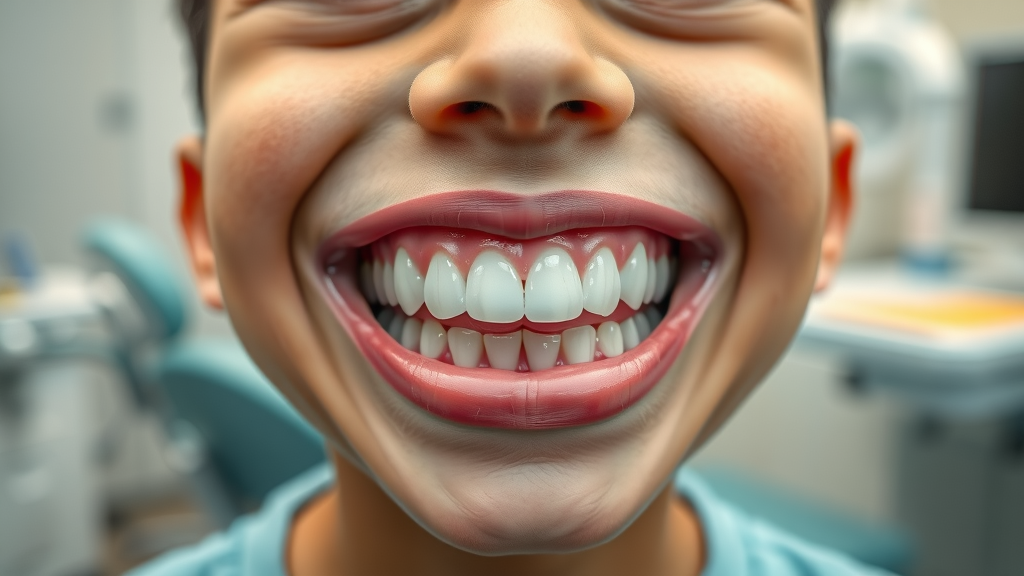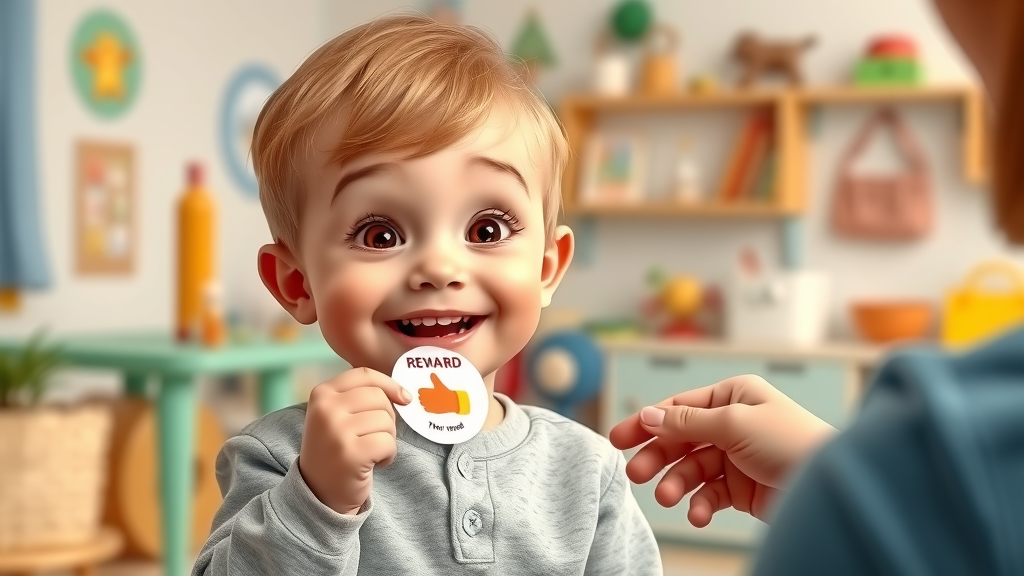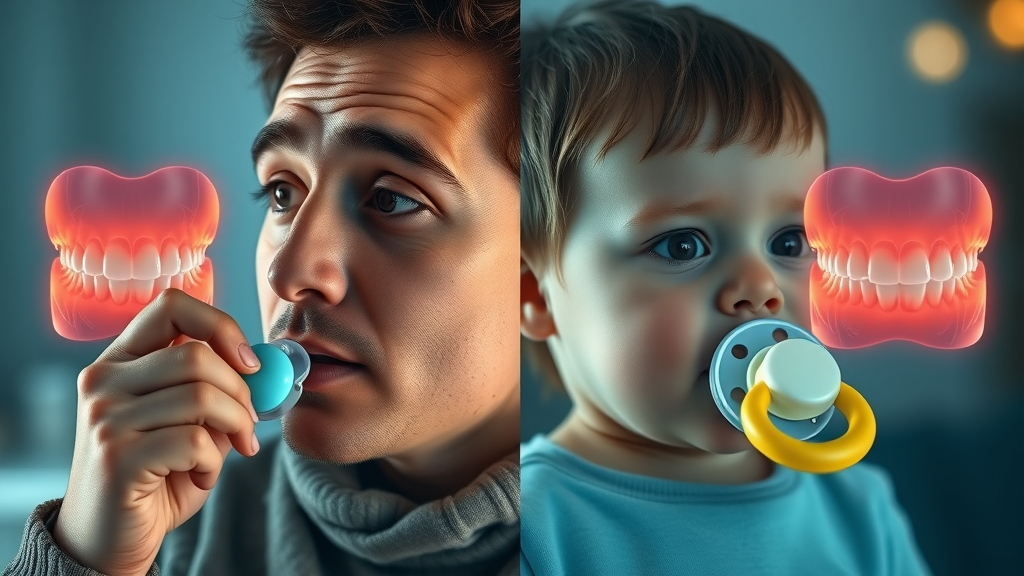Did you know that 60% of children under two regularly use a pacifier , or that nearly half suck their thumb during early infancy? As a parent, you want to protect your child’s beautiful smile, but it’s easy to overlook how these common habits can impact their dental development. In this comprehensive guide, you’ll uncover what every parent needs to know about the effects of thumb sucking and pacifier use on oral health—and learn expert-backed strategies for healthy habits and prevention.
What You’ll Learn
- How thumb-sucking and pacifier habits influence dental health
- Stats and facts about how prevalent these habits are in children
- The science behind why kids develop sucking habits
- Common dental problems from prolonged thumb-sucking or pacifier use
- When to consult a pediatric dentist
- Expert-approved tips to help your child break the habit
- The milestones in your child's dental development to watch for
- Clear answers to parents’ most asked questions
Unveiling the Impact: Does Thumb-Sucking or Pacifier Use Affect My Child’s Teeth?
Parents frequently ask, does thumb-sucking or pacifier use affect my child’s teeth? This question is more than a simple curiosity—it’s tied directly to your child’s long-term oral health and well-being. Both thumb-sucking and pacifier use are natural reflexes for infants and young children , often providing comfort and security. However, prolonged or forceful habits can eventually lead to dental problems as your child grows. Dental professionals consistently observe that when these habits continue beyond age four, they can cause dental misalignment, changes in the roof of the mouth , and even affect speech development.
Understanding the nuances between thumb-sucking and pacifier use is critical. While the sucking habit is a natural way for infants and toddlers to self-soothe, the timing, frequency, and intensity of the habit play a significant role in determining whether dental development is negatively impacted. Many parents are surprised to learn that even before the permanent teeth erupt, persistent sucking and pacifier routines can set the stage for orthodontic problems later in life. But before you worry, most children stop on their own—with the right guidance and awareness, early intervention can protect your child’s dental future .
Startling Statistics: The Prevalence of Thumb Sucking and Pacifier Habits in Children
It’s normal for parents to wonder if thumb-sucking is rare—or if their child’s pacifier habit is unusual. In reality, these behaviors are widespread among infants and young children . Studies suggest that as many as 45% of children under two regularly suck their thumbs, and up to 60% use pacifiers . While these habits typically peak in the toddler years, the prevalence drops significantly as children grow older and develop new coping mechanisms.
The difference between children who stop the sucking habit early and those who continue often comes down to both genetics and environment. It’s also clear that while the majority of kids naturally quit between ages two and four, a small percentage hold on to these soothing routines past their preschool years—raising the risk of dental health complications. Keeping a close watch as your child grows is important for ensuring these habits fade at an age-appropriate time.

| Age Group | % Children Who Suck Thumb | % Children Using Pacifiers | Typical Age of Habit Cessation |
|---|---|---|---|
| 0-2 yrs | 45% | 60% | <2 yrs |
| 3-5 yrs | 15% | 20% | 3-4 yrs |
| 6+ yrs | 2% | 1% | >4 yrs |
How Does Thumb-Sucking or Pacifier Use Affect My Child’s Teeth? Understanding Dental Development
The influence of thumb-sucking and pacifier use on dental development is significant—especially when these habits persist beyond the toddler years. The oral health risks relate directly to how often, how long, and how forcefully a child sucks their thumb or relies on a pacifier. As teeth erupt and the jaw develops, the ongoing pressure of a thumb or pacifier against the teeth and palate can result in misalignment or changes in the positioning of both the front teeth and the roof of the mouth .
Most dental experts agree that timely cessation of these habits allows for normal dental development. The younger the child stops, the less likely any noticeable misalignment or bite problems will occur. However, persistent and vigorous sucking can hinder proper alignment, leading to open bites or overbites. These dental problems often require orthodontic treatment if not addressed by breaking the habit early. A pediatric dental visit can provide helpful monitoring and tips to avoid lasting effects.
Thumb Sucking, Sucking And Pacifier Habits: How They Shape Dental Development
Thumb sucking and pacifier habits exert consistent pressure on developing teeth and the front part of the dental arch. While a gentle thumb resting in the mouth may not be a major concern, forceful sucking or pulling can cause teeth to shift, often leading to protrusion of upper teeth, open bites, or changes to the bite line . The sucking habit can interfere with the normal eruption sequence of primary and even permanent teeth, setting the stage for future orthodontic needs.
Pediatric dentistry experts emphasize the importance of monitoring both the frequency and intensity of the habit. Not only do these habits threaten dental alignment, but persistent thumb sucking or incorrect pacifier choices can alter the natural curve of the palate (roof of the mouth), sometimes impacting how your child chews or speaks. That’s why maintaining regular checkups with a pediatric dentist is crucial—these professionals can track dental growth, spot early signs of misalignment, and offer guidance personalized to your child’s needs.
“Early oral habits can define a lifetime of dental health.” — Leading Pediatric Dentist

Thumb Sucking and Pacifier Use: The Science Behind the Habits
The science behind thumb sucking and pacifier use starts with the fact that sucking is a natural reflex for infants . In most cases, these habits begin before birth and serve as a source of comfort and self-soothing as the child navigates new experiences and stressors. As children transition from infants to toddlers, other factors come into play, including emotional growth and their environment. Recognizing the underlying psychology and biology of these habits helps parents address them with empathy and effectiveness.
Pacifiers are often introduced intentionally for bedtime or during moments of fussiness. Thumb sucking, on the other hand, is self-initiated and tends to be driven by a child’s unique comfort cues . Pediatric dental professionals note that most sucking habits are harmless if the child self-weans by age three or four. However, if oral comfort routines continue as new teeth come in, parents need to be proactive about guiding their child toward healthier habits and alternatives.
Why Do Children Suck Their Thumb or Choose a Pacifier?
- Comfort and Security: Thumb-sucking helps many children feel safe and grounded, especially during big changes or unfamiliar situations.
- Self-Soothing: Sucking fingers or pacifiers is often a way for young children to calm themselves when upset or tired.
- Boredom or Sleep Aid: The repetitive action can help pass the time or serve as a familiar bedtime routine.
- Reaction to Stress: Stressful life changes may prompt children to return to or prolong sucking habits for reassurance.
The Sucking Habit: When Is It Considered Normal?
It’s perfectly normal for infants and young children to suck their thumb or use a pacifier as part of emotional and physical development. In fact, many children lose interest in their thumb or pacifier naturally as they discover new ways to cope. Problems arise when the habit persists into the preschool years or older—particularly when adult teeth begin to emerge. Pediatric dentists recommend gentle encouragement and positive reinforcement for children who are ready to quit, while advising medical consultation if the habit remains strong beyond age four.
Most dental professionals agree: the sucking habit should be closely watched once a child celebrates their fourth birthday. While it’s rarely a cause for alarm in toddlers, the longer the habit continues, the greater the impact on dental development . For peace of mind, schedule a dental visit with a pediatric dentistry expert when in doubt.
“Most children outgrow thumb sucking or pacifier use on their own by age 4.”
Dental Problems Arising from Persistent Thumb Sucking and Pacifier Use
Continued thumb sucking and pacifier use past the recommended age can cause a range of dental problems . Not all children will experience these issues, but prolonged or aggressive habits—especially while permanent teeth are forming—raise serious concerns. Dental health can be compromised as teeth are pushed out of natural alignment, leading to visible changes in bite and speech. Pediatric dentists look for early warning signs such as protruding upper front teeth, open bites, or a narrow palate during routine exams.
It’s worth noting that the effects of these habits are generally reversible if caught and addressed early. However, unaddressed sucking habits can become ingrained, requiring orthodontic treatment later in life. Parental awareness, paired with regular monitoring by dental professionals, is the best way to maintain a beautiful smile and promote lifelong oral health for your child.
Common Dental Problems Caused by Sucking Habits
- Overbite/Open Bite: Extended pressure from thumb or pacifier use can cause the front teeth to angle outward or prevent them from meeting when the mouth is closed.
- Misaligned Teeth: Teeth may shift out of natural position, setting the stage for bite problems and the need for braces.
- Changes in Roof of Mouth: Prolonged sucking can affect the shape of the palate, impacting eating and speech.
- Speech Difficulties: Dental changes can influence tongue placement, increasing the risk of speech delays or articulation issues.

The Role of Pediatric Dentists in Managing Thumb Sucking and Pacifier Habits
A pediatric dentist plays a vital role in supporting your child’s dental health as they navigate and eventually outgrow sucking habits. These professionals are trained to spot early signs of dental misalignment, changes in the roof of the mouth, and potential issues with speech or eating related to thumb sucking or pacifier use. A dental visit is recommended for children who continue these habits past age four or show visible changes in their teeth alignment.
Beyond examination, pediatric dentists offer customized guidance for families on how to break the habits in a way that’s gentle and child-friendly. They may introduce tools such as reward charts, positive reinforcement techniques, or even specialized dental appliances if needed. Working with a pediatric dental expert helps ensure your child receives preventative care before minor issues can escalate into major dental concerns.
When Should You Consult a Pediatric Dentist About Thumb Sucking or Pacifier Use?
- If habits persist beyond age 4
- Visible dental changes
- Impact on speech or eating

Sucking or Pacifier: Which Is Worse for My Child’s Dental Health?
Many parents find themselves torn between letting their child have a pacifier or leaving them to their thumb. So, what is worse for teeth: pacifier or thumb? Pediatric dental experts reveal that both can impact oral health if the habits persist, but there are differences to consider. Thumb sucking often lasts longer since thumbs aren’t “taken away” and may become more challenging to stop. As a result, the risk for dental misalignment increases. Pacifiers, on the other hand, can be modified or discontinued more easily, though prolonged or improper use creates similar dental concerns. Choosing an orthodontic pacifier and enforcing time limits can minimize the effects.
By understanding the differences in dental risk and ease of habit cessation, parents can make informed choices for their child’s unique needs.
| Habit | Dental Risks | Ease of Stopping |
|---|---|---|
| Thumb Sucking | Higher risk of dental misalignment | Difficult, no external control |
| Pacifier Use | Risk depends on type/usage | Easier to phase out |
Tips from Pediatric Dentistry Experts: Breaking the Sucking Habit Responsibly
When it’s time to break the habit, pediatric dentistry professionals recommend compassionate, consistent approaches. Positive reinforcement, offering alternate comfort objects, and gradual changes to routines are most effective. Parents should never shame or punish a child for sucking habits, as this can worsen anxieties and prolong dependence. Instead, celebrate no-habit days, create reward systems, and seek guidance from your pediatric dentist if challenges persist.
It often helps to explain the benefits of quitting—the promise of healthy, strong teeth and a beautiful smile . For children who need extra support, dental professionals may suggest short-term mouth appliances or behavioral techniques suited to their developmental stage.
- Offer Praise for No-Habit Days
- Gradually Limit Pacifier Use
- Introduce Comfort Alternatives
- Seek Guidance from Pediatric Dentist
Safe Techniques to Help Your Child Quit Thumb Sucking or Pacifier Use
Helping your child quit a persistent sucking or pacifier habit works best with encouragement and patience. Try giving small rewards or verbal praise each day your child avoids the habit. Change up routines to replace the sucking habit with a favorite toy or soft blanket. Gradually limit pacifier use to naps and bedtime until your child is ready to go without. If your child is having difficulty quitting or if dental changes are already present, reach out to your pediatric dentist —they’re trained to offer solutions tailored to your child’s needs and personality.
Remember, each child’s journey is different. Prioritizing positive associations and open communication empowers your child to make the transition at their own pace, minimizing stress for both of you.

What Parents Need to Know About Dental Development Milestones
Strong oral health begins with understanding what to expect as your child grows. Parents should track dental milestones from the eruption of the first baby tooth through the shedding of primary teeth and the arrival of permanent teeth. Normal dental development is different for every child, but sudden or dramatic changes—like spacing, bite shifts, or palate transformations—should prompt a pediatric dental visit.
Keeping a record of your child’s dental growth, being attentive to changes, and noting when habits fade can help you and your dental team catch potential problems early—ensuring your child enjoys a confident, beautiful smile all their life.
- Eruption Ages for Primary/Adult Teeth
- Signs of Normal vs. Delayed Dental Development
- Monitoring Dental Changes from Sucking Habits
Frequently Overlooked Signs That Thumb Sucking Is Affecting Your Child’s Dental Health
Parents might not always spot the subtle signs of dental issues caused by thumb sucking. Look for changes like the front teeth no longer touching when the mouth closes, a noticeable overbite, or gaps between the teeth that weren’t there before. Speech changes or new tongue habits—like pushing the tongue forward—may also signal a problem. Regular checkups with a pediatric dentist are your best defense for catching these concerns before they require more extensive treatment.
Always monitor how your child’s teeth seem to be aligning as new teeth erupt. Even small shifts can provide an early warning. Being proactive keeps little problems from becoming big ones down the road.
People Also Ask: What Is Worse for Teeth, Pacifier or Thumb?
While both pacifier and thumb sucking can impact dental health if prolonged, thumb sucking may be harder to control and often persists into later ages, potentially increasing the risk of bite issues and dental misalignment. However, certain types of pacifiers may also lead to alignment problems if used too long.

People Also Ask: Can a Pacifier Cause Teeth Problems?
Extended pacifier use, especially beyond age 3-4, can cause dental problems like open bites, overbites, and palate changes. It's important to choose orthodontic pacifiers and limit use as children get older.
People Also Ask: What Are the Long-Term Effects of Thumbsucking?
Long-term thumb sucking can result in misaligned teeth, bite problems, altered mouth roof shape, and even speech delays if the habit is not stopped by early school age. Regular pediatric dentist checkups can prevent or address these issues.
FAQs: Does Thumb-Sucking or Pacifier Use Affect My Child’s Teeth?
-
Q1: At what age should my child stop thumb sucking or pacifier use?
A1: Ideally by age 3 to minimize dental risks. -
Q2: Can thumb sucking damage permanent teeth?
A2: Yes, especially if the habit continues after adult teeth erupt. -
Q3: Will my child need braces because of thumb sucking?
A3: Not always, but persistent habits increase the likelihood. -
Q4: Are orthodontic pacifiers better for dental development?
A4: They can reduce, but not eliminate, dental risks.
Expert Advice and Final Thoughts on Thumb Sucking, Pacifier Use, and Your Child’s Dental Development
“Every child’s dental health journey is unique, but parental awareness is the key to prevention.”
Every child’s path to healthy teeth is different, but being informed about thumb sucking, pacifier use, and dental development means you’re better prepared to support your child’s oral health—now and for years to come. Knowledge empowers you to make the best choices and seek professional advice when needed.
Key Takeaways for Parents on Thumb Sucking, Sucking And Pacifier Habits, and Dental Health
- Early intervention prevents most dental problems.
- Consult a pediatric dentist for personalized guidance.
- Healthy dental development starts with informed choices.
Take Charge of Your Child’s Dental Health Today
Your smile is worth it — and staying informed is the first step. Join hundreds of locals already following Grand Strand Smile Spotlight for updates, advice, and trusted care insights.
For any concerns about your child’s thumb-sucking or pacifier habits, or to schedule an appointment with a trusted pediatric dental team, remember that early positive action is always best. Your efforts today will help ensure a lifetime of healthy smiles for your child!
Prolonged thumb-sucking and pacifier use can significantly impact your child’s dental development. According to the American Association of Orthodontists, these habits can lead to issues such as protruding front teeth, open bites, and crossbites, potentially affecting speech and increasing the risk of dental trauma. ( aaoinfo.org ) Similarly, Curity Dental Care highlights that extended thumb-sucking or pacifier use may delay the eruption of permanent teeth and alter jaw and facial growth, leading to misalignment and other oral health concerns. ( curitydental.com ) If you’re serious about safeguarding your child’s oral health, these resources provide valuable insights into the potential risks and offer guidance on mitigating them.
 Add Row
Add Row  Add
Add 




Write A Comment